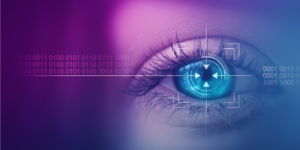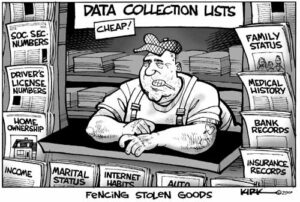Blog Post #2 -Digital Identity

- What is a digital identity?
Define digital identity has always been a challenge. People understand the meaning of “identity” by its multiple forms in digital products, services, and networks. Every identity system will have a huge impact. With the use and maturity of social media, the importance and complexity of the identity system are increasing. Whatever your goals and technical needs for digital identity, you should start interacting with others. Despite imperfect definitions and differences, it related to our instinct, digital identity is not static, single, or personal. We want a connected, trusted, usable digital identity that can be extended to global use. It should be flexible, dynamic, and interoperable.
- How do personal versus professional approaches to digital identity affect social media use?
Nowadays people mostly have two digital identities, one for professional purposes, the other for private purposes. The reason for that is people do not want business demand to interrupt their personal life. Professional digital identity also represents the image of business cooperation. In social media, professionals show the brand personality to cultivate potential customers. They express a strategic impression of the product by maximum every positive feature by the scientific statistic, but you never see the negative information from there. In contrast, personal digital identity is diversified. You could share your favorite TV shows, hobby, books, and pets to let other viewers resonate with you and get the ripple effect.
- How do digital identities converge in networked publics – what are the impacts and/or benefits?
Social media is simple enough to enrich your life, but you do not want social media to control your mind. If you keep the reasonable harmonious image in your social account, you won’t involve in any trouble unless you post incendiary messages. Professional digital identity knows how to operate public relationships. No matter what type of users you serve, the goal is the same: let others interact with you and realize the value. The impacts could be numerous on the internet. People could explore the edge of knowledge in the process of social media in registration, certification, and participation. They could observe as much experience as possible with the least additional cost. Moreover, People focus on core value-added points with community discussion. Then you will find them useful information grows convergently over time. The digital identity approach will change with a more flexible decentralized model.
- Can a digital wallet provide trust in networked publics?
From my perspective, the digital wallet is trustable. From the development of digital encryption and blockchain techniques. Every transaction of E-money is traceable. Every flow in the circulation process will have node records and biometric identification authorization. As long as the organization of the digital wallet is certificated, E-money is safely stored in your own biometric authentication node.
References:
- Cartwright, D. (2020, December 11). Managing Personal vs. Professional Identity on Social Media. Qnstux. https://online.queens.edu/resources/article/managing-personal-vs-professional-identity-on-social-media/
- Davos 2019 – Press Conference The Value of Digital Identity for the Global Economy and Society. (2019, February 5). [Video]. YouTube. https://www.youtube.com/watch?v=1-V7lyxrOmw&feature=youtu.be



